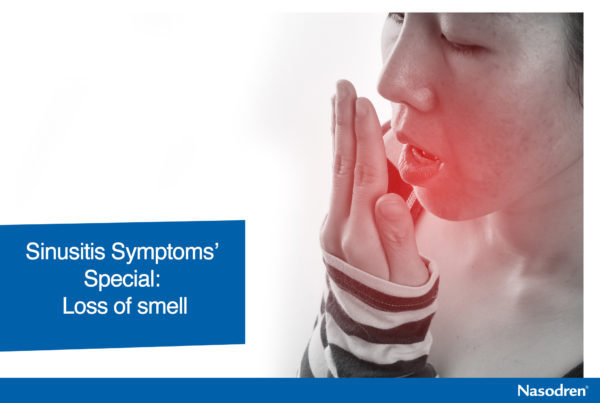Various clinical trials have estimated that around 10% of people suffer from an olfactory disorder. This percentage increases to 25% in those over 40 years of age and is more common in men than in women.
Due to COVID-19, attention has been paid to the loss of smell and has been included among the symptoms of this disease.
In addition to impaired olfactory ability, that is, reduced smell (hyposmia) or loss of smell (anosmia), there are other disorders that alter the sense of smell, such as parosmia.
What is parosmia?
Parosmia is a change in the normal perception of odours that can make a previously pleasant smell such as coffee unpleasant.
The type of smell that is perceived differently changes from one person to another, and when it affects the smell of food, it can make their favourite food unpalatable.
Some people may perceive the same unpleasant smell compared to different scents (roses, oranges, etc.).
What Causes Parosmia?
The exact reason why parosmia occurs is not precisely known, although there are several causes. Parosmia most commonly, occurs after a viral infection of the upper respiratory tract, such as sinusitis.
On these occasions, the loss of smell then progresses to parosmia.
Cranioencephalic disorders and diseases can affect the parts of the central nervous system that process smell.
Smoking and exposure to chemicals can damage the olfactory system and can lead to parosmia over time.
How long does parosmia last?
There is no set duration, and there is a wide variation among sufferers, ranging from days to years. Recovery time varies depending on the cause and treatment.
The good news is that the onset of parosmia after a loss of smell means that the olfactory nerves are recovering.
How is parosmia treated?
The first step is to treat the cause, obviously, when treatment is known and exists.
One treatment that has emerged as a simple option without, side-effects for various causes of loss of smell is olfactory training. This therapy involves the conscious sniffing of at least four different smells at least twice a day for several months.
Finally, it is remarkable that around 80% of people with chronic sinusitis have an alteration/loss of smell. The symptoms of this disorder are caused by the accumulation of mucus in the paranasal sinuses, and therefore relief is achieved by draining that mucus. This is precisely what Nasodren does.
Nasodren is a 100% natural product that has a unique and dual physiological mechanism of action. Nasodren acts both at the level of the nasal fossa and the paranasal sinuses, unlike other products for sinusitis that only act at the level of the nasal mucosa. Nasodren removes retained mucus both in the nostril and in the paranasal sinuses, relieving all symptoms of sinusitis from the first application








